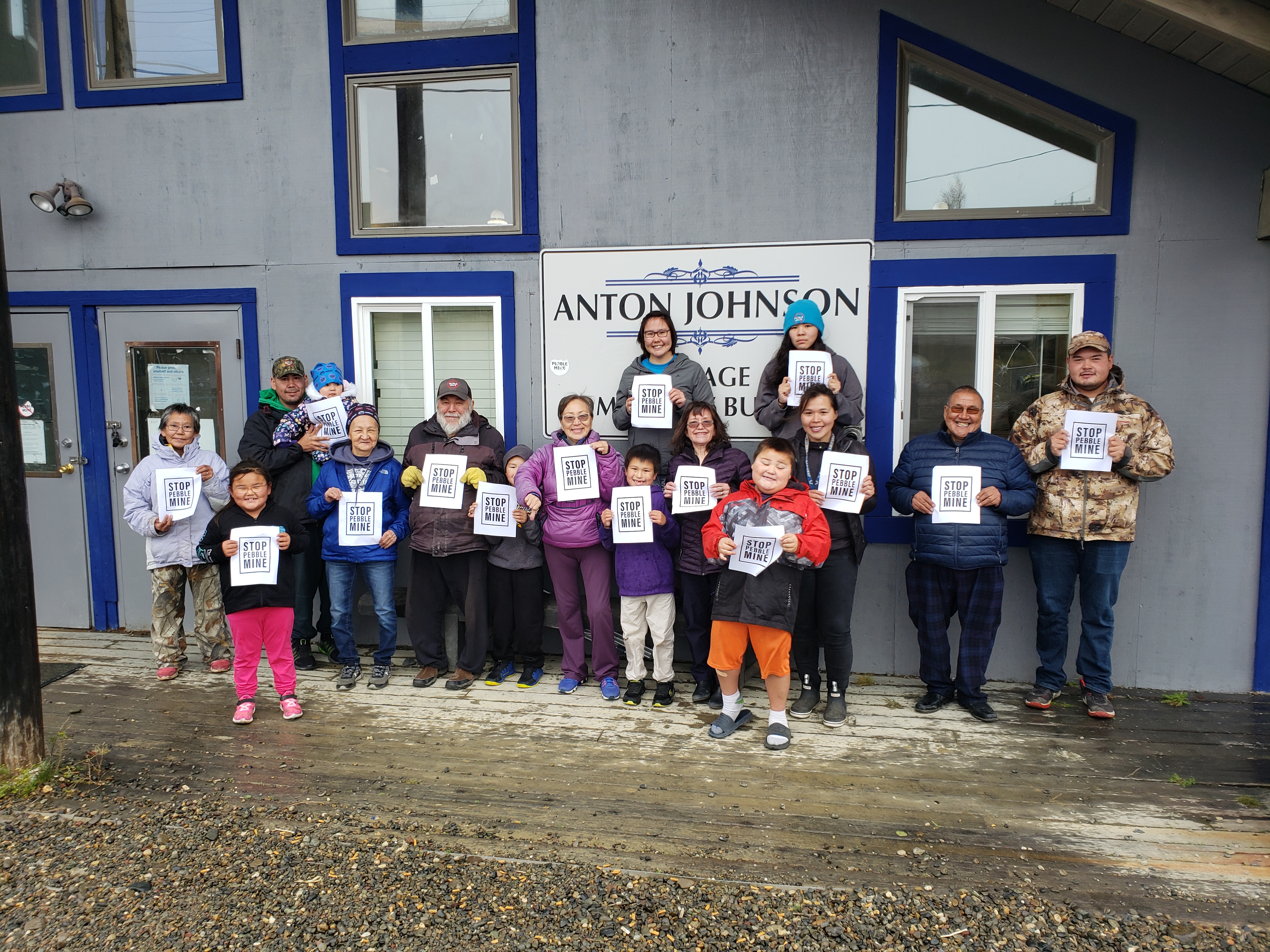We'll be setting our clocks back this weekend, but a passionate letter-writing exchange in Alaska is making this feel like a moment from the distant past. Unlike your average political correspondence, the parties involved in this exchange are laying pretty plain how they really feel.
This series of missives between Gov. Mike Dunleavy and two state legislators, Reps. Bryce Edgmon and Louise Stutes, is one component of the fallout of the controversial Pebble Tapes, in which activists posed as potential mine investors and recorded Pebble and Northern Dynasty executives Tom Collier and Ronald Thiessen bragging about the mining conglomerate's use of the governor's office to launder communications for the White House.
"Your letter does not address Pebble’s blunt characterization of you and others within your administration as acting behind closed doors on Pebble’s compensatory mitigation plan," Edgmon writes in an Oct. 26 reply to the governor, which started with a September message from Edgmon and Stutes. "Similarly, we note that your letter does not address Tom Collier’s admissions that he interfered in Alaska’s election process. Silence on these points undercuts the integrity of state government in ways that go far beyond Pebble, and we urge you to speak to them."
The letter recognizes Alaska Sens. Lisa Murkowski and Dan Sullivan for making direct statements against the project after the Pebble Tapes called attention to their tendency to fade into the background when it came to Pebble.
Sens. Murkowski and Sullivan "both have unequivocally stated that Pebble is the wrong mine in the wrong place and that it is an existential threat to the wellbeing of the world class salmon fisheries in Bristol Bay," Edgmon writes.
(On this topic, Washington Sen. Maria Cantwell has historically been a more outspoken advocate of the Bristol Bay fishery than either of Alaska's senators.)
Dunleavy denied participation in any pro-Pebble schemes, but did acknowledge his dedication to economic success for the region in his Oct. 6 letter.
"The governor has no intention of sacrificing one resource for the benefit of the other," said Corey Allen Young, the governor's deputy press secretary, in a statement to NF this week. "His policy is focused on the utilization of Alaska’s natural resources and letting the process take place. His priority remains the same in seeking projects that protect the environment and will improve the financial future of the Bristol Bay region, and he will continue to advocate for the families that live in the region who continue to suffer from a lack of economic opportunities."
That statement is little changed from the sentiments in the governor's October letter, and Edgmon's letter pushes back on that claim with a clear directive from the people of Bristol Bay.
"As history has shown," Edgmon writes, "you cannot uplift a region by ignoring its people and undercutting their culture. The people of Bristol Bay have repeatedly and soundly rejected Pebble as the panacea you claim it would be."
Edgmon's letter is cosigned by the Bristol Bay Native Corporation, the United Tribes of Bristol Bay, the Bristol Bay Native Association and the Bristol Bay Economic Development Corp.
"The people of Bristol Bay identified their economic vision for the region in the Bristol Bay Regional Vision Project. We defined that vision to include, among other things, that '[o]ur future includes diverse economic opportunities in businesses and industries based largely on renewable resources. Large development based on renewable and non-renewable resources must not threaten our land, our waters, or our way of life.' This vision 'reflects the shared values of the people of the region based on what residents in every community said.' Pebble clearly does not fit within it."
Edgmon goes on to refute the governor's claim that the potential for Pebble's mineral development creates an opportunity to improve the nation's security.
"The Pebble Limited Partnership’s stated plan is to ship the ore concentrate to Asia where it gets refined and turned into a useable product," the letter says in closing. "Given PLP’s history of misdirection and deception, it is no shock to us that a PLP talking point can so easily be discredited. It is, however, unfortunate that you continue to repeat these falsehoods."
In the Pebble Tapes, mining executives believed they were pursuing would-be investors from China. Shipping routes from Alaska to China are well worn. Some may point out that Alaska's salmon processors have relied on China for reprocessing H&G product, specifically from areas with difficulty supplying ice to the fleet, like Bristol Bay.
It's true that this relationship was a critical stepping stone for Alaska's wild product. It helped Alaska salmon climb out of cans and into freezer cases as pinboned fillets and value-added products. The difference is that the benefits of Chinese reprocessing came back to U.S. companies and independent fishermen.
Pebble's benefits last as long as the jobs on the ground, but that's it. The refined products would enter the global market. Pebble's parent company is Northern Dynasty, based in Canada. A new duo of tapes released reportedly reveals that Thiessen hoped to get a $1.5 billion subsidy from the state of Alaska to help pay for infrastructure.
The tapes also revealed that the risk is held by a shell corporation, specifically set up to protect investors from damages. So what does that leave for Bristol Bay? A generation of jobs and then the permanent responsibility of keeping the mining byproduct out of the region's salmon streams forever. It seems like a mighty long time.
If Bristol Bay locals are going to be left holding the bag, they're well within their rights to choose a brailer bag.







